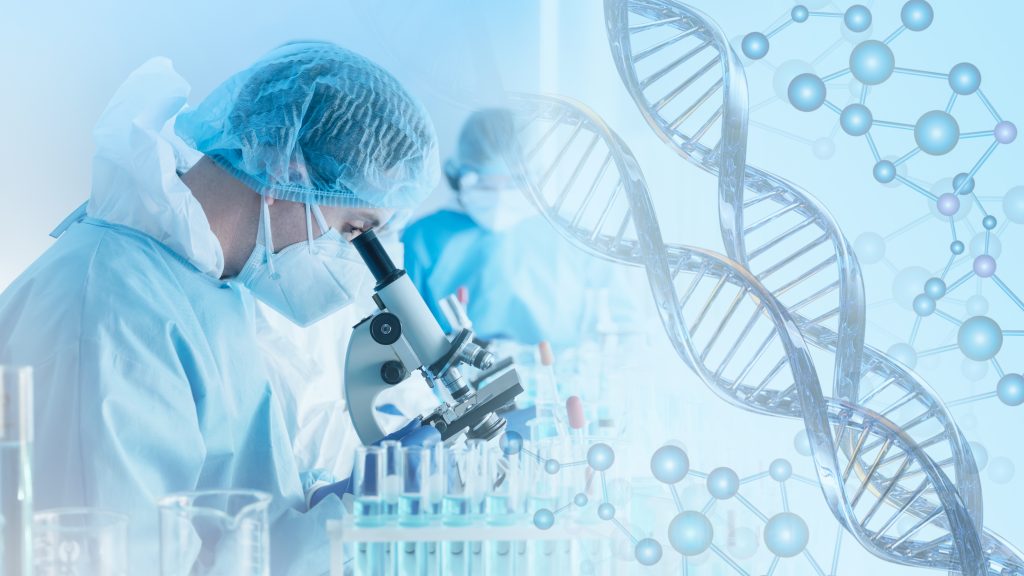Gallbladder cancer is a rare but serious disease that often has no early symptoms. Ultrasound imaging tests, particularly abdominal ultrasounds, have become a critical tool in the detection, diagnosis, and staging of gallbladder cancer.
During an ultrasound examination, high-frequency sound waves are used to produce detailed images of the gallbladder and surrounding areas. These images can help identify abnormalities and changes in the tissue structure that may indicate the presence of cancer.
As an important non-invasive screening tool, ultrasound can detect abnormalities in the gallbladder in its early stages. Early detection and intervention are essential in treating gallbladder cancer, as it may spread rapidly to other organs if left untreated.
Key Takeaways
- Ultrasound imaging tests are crucial in the detection, diagnosis, and staging of gallbladder cancer.
- Abdominal ultrasounds can identify abnormalities in the gallbladder and surrounding areas, indicating the presence of cancer.
- Early detection and intervention are vital in the effective treatment of gallbladder cancer.
Understanding Gallbladder Cancer
Gallbladder cancer is a type of cancer that begins in the gallbladder, a small organ located just below the liver. It is a relatively rare cancer, with an estimated 9,000 new cases diagnosed each year in the United States. Gallbladder cancer can be difficult to diagnose, as it often presents with nonspecific symptoms that may be attributed to other conditions.
Some of the risk factors associated with gallbladder cancer include:
- Being female
- Being over the age of 65
- Having a history of gallstones
- Having a family history of gallbladder cancer
- Being Native American or Mexican-American
Common symptoms of gallbladder cancer include abdominal pain, jaundice, nausea and vomiting, and unexplained weight loss. Unfortunately, these symptoms may not present until the cancer has progressed to an advanced stage, making early detection and diagnosis important.
The Role of Ultrasound in Gallbladder Cancer Diagnosis
When it comes to detecting and diagnosing gallbladder cancer, ultrasound imaging tests play a crucial role. A non-invasive and safe imaging technique, ultrasound uses high-frequency sound waves to produce detailed images of the organs and tissues within the body.
During an ultrasound examination for gallbladder cancer, a transducer is placed on the skin of the patient’s abdomen, which emits sound waves that bounce off the gallbladder and surrounding tissues. The echoes of these sound waves are converted into images that can be viewed in real-time on a monitor.
Ultrasound imaging allows doctors to identify any abnormalities in the gallbladder, such as the presence of tumors or lesions. It is also useful in detecting whether the cancer has spread beyond the gallbladder to nearby organs and tissues.
The Benefits of Ultrasound for Gallbladder Cancer Diagnosis
The benefits of ultrasound for diagnosing gallbladder cancer are numerous. Firstly, ultrasound imaging is safe and non-invasive, meaning that it does not expose patients to harmful radiation or require any injections or incisions.
Furthermore, ultrasound scans can be performed quickly and easily, with patients able to resume their normal activities immediately afterwards. This makes it a convenient option for those who require regular follow-up scans to monitor the progression of their cancer.
Ultrasound is also highly accurate in detecting abnormalities in the gallbladder and surrounding tissues. This allows doctors to diagnose gallbladder cancer at an early stage, when treatment is most effective, and tailor individualized treatment plans to each patient’s specific needs.
Limitations of Ultrasound for Gallbladder Cancer Diagnosis
Although ultrasound is an effective tool for diagnosing gallbladder cancer, it does have certain limitations. For example, it may be less effective in detecting small or deeply embedded tumors or lesions within the gallbladder or surrounding tissues.
In addition, ultrasound may not always provide a clear picture of the extent or stage of the cancer. In some cases, additional imaging tests such as CT scans, MRI scans, or PET scans may be needed to provide a more accurate diagnosis and staging.
Despite these limitations, ultrasound remains an important and valuable tool in the diagnosis and management of gallbladder cancer, allowing doctors to detect abnormalities early and provide effective treatment options to patients.
Gallbladder Cancer Screening with Ultrasound
Early detection is key in treating gallbladder cancer, and regular screenings with ultrasound can play a critical role. Ultrasound imaging tests use high-frequency sound waves to create detailed images of the gallbladder and surrounding areas. These images can then be used to detect any abnormalities or potential signs of cancer.
When it comes to gallbladder cancer, ultrasound is often the first imaging test performed to screen for the disease. It is a non-invasive and painless procedure that does not expose patients to radiation.
The benefits of early detection through ultrasound screenings cannot be overstated. Catching gallbladder cancer in its early stages greatly increases the chances of successful treatment and long-term survival. It is recommended that individuals at high risk for gallbladder cancer receive regular screenings, including those with a family history of the disease, those with a history of gallstones, and those with a history of chronic inflammation of the gallbladder.
If abnormalities are detected during a screening ultrasound, further testing may be necessary to confirm a diagnosis. This may include an ultrasound-guided biopsy or other imaging tests, such as a CT scan or MRI.
Ultrasound-Guided Biopsy for Gallbladder Cancer
When imaging tests such as ultrasound detect abnormalities in the gallbladder, a biopsy may be necessary to obtain a tissue sample for further analysis. An ultrasound-guided biopsy is a minimally invasive procedure that uses real-time ultrasound imaging to guide the placement of a needle into the targeted area. The needle is then used to extract a small tissue sample, which is sent to a lab for analysis.
This technique allows doctors to obtain accurate diagnostic information without the need for surgery or more invasive procedures. An ultrasound-guided biopsy is typically performed on an outpatient basis and may only require local anesthesia.
This procedure is particularly useful in cases where other imaging tests have detected a suspicious mass, but it is unclear whether it is malignant or benign. An ultrasound-guided biopsy can provide a definitive diagnosis and help guide treatment decisions.
Gallbladder Cancer Staging Ultrasound
Ultrasound plays a crucial role in staging gallbladder cancer. The extent and spread of the disease within the gallbladder and surrounding tissues can be determined through ultrasound findings. This information is important because it helps to guide treatment decisions and prognosis.
The ultrasound staging procedure involves examining the gallbladder, liver, and nearby lymph nodes for signs of cancer. The doctor may also look for signs of cancer spread to other areas, such as the liver or lungs. The results of the ultrasound staging procedure can help determine the cancer stage and the best treatment options.
It is essential to note that while ultrasound is a valuable tool in the staging of gallbladder cancer, additional imaging tests may be required to provide a complete picture of the disease. These tests may include CT scans, MRI scans, and PET scans.
Ultrasound Characteristics of Gallbladder Cancer
During an ultrasound examination, certain characteristics may indicate the presence of gallbladder cancer. These features include:
- Thickening of the gallbladder wall
- Irregularity or distortion of the gallbladder shape
- Poorly defined borders of the gallbladder
- Absence of the normal layered appearance of the gallbladder wall
- Possible presence of gallstones
- Presence of solid masses in the gallbladder or surrounding tissues
It is important to note that these characteristics may not be present in all cases of gallbladder cancer. Additionally, certain non-cancerous conditions may also exhibit similar ultrasound features. Therefore, accurate diagnosis and staging should only be made by a qualified healthcare provider with expertise in gallbladder cancer imaging.
The Accuracy of Gallbladder Cancer Ultrasound
While ultrasound imaging is a valuable tool in the detection and diagnosis of gallbladder cancer, it is important to note that it may not always be 100% accurate. The accuracy of ultrasound depends on various factors, including the size and location of the tumor, skill of the technician performing the exam, and the patient’s body habitus (body shape and composition).
Additionally, gallstones or other benign conditions may sometimes be mistaken for cancerous growths on ultrasound imaging, leading to unnecessary worry and further testing. In some cases, other imaging techniques, such as CT scans or MRI scans, may be recommended to confirm a diagnosis or assess the extent of the disease.
Despite these limitations, ultrasound remains a valuable and non-invasive tool for detecting and monitoring gallbladder cancer. Regular follow-up ultrasounds can help track the progression of the disease and guide treatment decisions.
Holistic Cancer Treatment at the Cancer Center for Healing
The Cancer Center for Healing, located in Irvine, CA, is dedicated to providing patients with a comprehensive and holistic approach to cancer care, including gallbladder cancer. Dr. Leigh Erin Connealy, the lead physician at the center, recognizes that every patient is unique and requires a personalized treatment plan tailored to their individual needs.
At the Cancer Center for Healing, a wide range of holistic treatment modalities are available, including natural and alternative therapies. These may include nutritional counseling, acupuncture, massage therapy, and mind-body medicine. The center also incorporates cutting-edge conventional cancer therapies, such as surgery, chemotherapy, and radiation therapy, to ensure that the best possible outcomes are achieved for each patient.
Comprehensive Approach to Gallbladder Cancer Care
At the Cancer Center for Healing, the care of individuals with gallbladder cancer is approached comprehensively, with the goal of providing the best possible outcomes for patients. They believe that personalized care is the key to success, and thus they create tailored treatment plans that take into consideration each individual’s unique circumstances and approach the disease from multiple angles.
The Cancer Center for Healing utilizes a wide range of treatment modalities to provide their patients with the most effective care possible. These modalities include surgery, chemotherapy, radiation therapy, and other alternative therapies, such as acupuncture, naturopathic medicine, and mind-body medicine. They also offer nutritional and lifestyle counseling to support the overall health of their patients.
Schedule a Consultation at the Cancer Center for Healing
If you or a loved one has been diagnosed with gallbladder cancer or has symptoms that require evaluation, the Cancer Center for Healing offers comprehensive and personalized care.
Led by Dr. Leigh Erin Connealy, the Cancer Center for Healing takes a holistic approach to cancer treatment, incorporating various modalities to address the physical, emotional, and spiritual needs of each patient.
To schedule a consultation or learn more about our services, please contact us at (949) 680-1880. Our team is dedicated to providing exceptional care and support throughout your cancer journey.
Other Imaging Techniques for Gallbladder Cancer
Aside from ultrasound, there are other imaging techniques that can be used to detect gallbladder cancer. Complementary techniques include:
| Technique | Advantages |
|---|---|
| Computed Tomography (CT) Scans | Provide detailed images of the gallbladder and surrounding tissues. Useful in detecting spread of cancer. |
| Magnetic Resonance Imaging (MRI) Scans | Similar to CT scans but use different technology to create images. May be more effective in visualizing certain types of cancer. |
| Positron Emission Tomography (PET) Scans | Use radioactive tracers to detect cancer cells. Can be useful in identifying cancer that has spread to other parts of the body. |
While ultrasound is often the first choice for detecting and diagnosing gallbladder cancer, these other techniques may provide additional information and help guide treatment decisions.
Importance of Regular Follow-Up Ultrasounds
For individuals diagnosed with gallbladder cancer, regular follow-up ultrasounds are crucial in monitoring the progression of the disease and determining the effectiveness of ongoing treatment. Ultrasound imaging can help identify any changes or abnormalities in the gallbladder and surrounding tissues, providing important information for treatment planning and decision-making.
Gallbladder Cancer Ultrasound Research and Advancements
Advancements in technology and medical research have led to promising developments in the field of gallbladder cancer ultrasound. Ongoing research aims to improve the diagnostic accuracy of ultrasound imaging, allowing for earlier detection and more effective treatment planning.
One such area of research involves the use of contrast-enhanced ultrasound imaging, which involves the injection of a contrast agent to highlight specific areas of the gallbladder and surrounding tissues. Studies have shown that contrast-enhanced ultrasound can improve the accuracy of gallbladder cancer diagnosis and help differentiate between benign and malignant lesions.
Another area of research focuses on the use of ultrasound elastography, which assesses tissue stiffness and can help differentiate between cancerous and non-cancerous tissues. This technique has shown promise as a non-invasive method for diagnosing and staging gallbladder cancer.
The development of artificial intelligence (AI) tools is also being explored as a way to improve ultrasound diagnosis accuracy. AI algorithms can analyze ultrasound images and provide diagnostic support to physicians, enhancing their ability to detect and diagnose gallbladder cancer.
As research in the field of gallbladder cancer ultrasound continues to evolve, it is likely that additional advancements will be made to improve diagnostic accuracy and treatment outcomes for individuals affected by this disease.
Support and Resources for Gallbladder Cancer Patients
Being diagnosed with gallbladder cancer can be overwhelming, and patients may feel isolated and anxious about their future. However, there are numerous support groups, organizations, and resources available to help individuals affected by this disease.
A great place to start is by speaking with your healthcare provider or the Cancer Center for Healing team. They can provide valuable information about local support groups, counseling services, and other resources in your area. Additionally, the American Cancer Society offers a variety of programs and resources for individuals with cancer, including a 24/7 helpline, online chat forums, and educational materials.
For those seeking support from others who have been through similar experiences, there are a number of online and in-person support groups dedicated to gallbladder cancer. These groups provide a safe and welcoming space where individuals can share their feelings, connect with others, and learn from those who have navigated similar challenges.
Additional Resources for Gallbladder Cancer Patients
| Organization | Website | Phone Number |
|---|---|---|
| American Cancer Society | https://www.cancer.org | 1-800-227-2345 |
| The Cholangiocarcinoma Foundation | https://cholangiocarcinoma.org/ | (888) 936-6731 |
| The Lustgarten Foundation | https://lustgarten.org/ | (866) 789-1000 |
Remember, it’s important to not feel alone in the face of a gallbladder cancer diagnosis. By reaching out for support and utilizing the resources available, patients can feel empowered and more capable of facing their journey towards recovery.
Conclusion
Gallbladder cancer ultrasound plays a critical role in the detection, diagnosis, and staging of the disease. By utilizing this non-invasive imaging technique, physicians can identify abnormalities in the gallbladder and surrounding areas, guiding treatment decisions and providing the best possible outcomes for patients.
While limitations exist in ultrasound’s accuracy for certain cases, it remains a valuable tool in the diagnostic process and complements other imaging techniques such as CT scans, MRI scans, and PET scans.
Early detection is key, and regular follow-up ultrasounds can help monitor the progression of the disease and guide ongoing treatment decisions. Patients and their loved ones can find support and resources through organizations dedicated to gallbladder cancer, and the Cancer Center for Healing in Irvine, CA offers a comprehensive and personalized approach to cancer care.
Ongoing research and advancements in the field of gallbladder cancer ultrasound offer hope for improved diagnostic accuracy and treatment planning.
Take Action Today
Don’t wait – schedule a consultation at the Cancer Center for Healing to receive a comprehensive evaluation and personalized treatment plan. Call (949) 680-1880 to connect with the team of experts and take control of your health journey.
FAQ
Q: What is gallbladder cancer ultrasound?
A: Gallbladder cancer ultrasound is a diagnostic imaging technique that uses sound waves to create detailed images of the gallbladder and surrounding areas. It plays a crucial role in detecting, diagnosing, and staging gallbladder cancer.
Q: How does ultrasound help in diagnosing gallbladder cancer?
A: Ultrasound imaging tests can detect abnormalities in the gallbladder and surrounding tissues, allowing healthcare professionals to identify potential signs of gallbladder cancer. It provides valuable information for diagnosis and treatment planning.
Q: What is the importance of gallbladder cancer screening with ultrasound?
A: Gallbladder cancer screening using ultrasound is crucial for early detection. Regular screenings can help identify the disease in its early stages when treatment options are more effective and outcomes are generally better.
Q: Can ultrasound guide biopsies for gallbladder cancer?
A: Yes, ultrasound can be used to guide biopsies for gallbladder cancer. The procedure involves using ultrasound imaging to precisely target suspicious areas and obtain tissue samples for accurate diagnosis.
Q: How does ultrasound contribute to gallbladder cancer staging?
A: Ultrasound findings provide valuable information for staging gallbladder cancer. They help determine the extent and spread of the disease within the gallbladder and surrounding tissues, assisting in treatment planning and prognosis.
Q: What are the specific ultrasound characteristics of gallbladder cancer?
A: Ultrasound can reveal specific features that may indicate the presence of gallbladder cancer, such as thickening of the gallbladder wall, the presence of masses or nodules, and abnormal blood flow patterns, among others.
Q: How accurate is gallbladder cancer ultrasound?
A: While ultrasound is a valuable tool in detecting gallbladder cancer, its accuracy may vary depending on factors such as the size and location of the tumor. In some cases, additional imaging techniques may be necessary to confirm the diagnosis.
Q: What other imaging techniques are used for gallbladder cancer?
A: In addition to ultrasound, other imaging techniques such as CT scans, MRI scans, and PET scans may be used for gallbladder cancer diagnosis and staging. These techniques provide complementary information to enhance the accuracy of the diagnosis.
Q: Why are regular follow-up ultrasounds important for gallbladder cancer patients?
A: Regular follow-up ultrasounds are essential for monitoring the progression of gallbladder cancer and guiding ongoing treatment decisions. They help track the effectiveness of treatment and detect any recurrence or new developments.
Q: Where can I find support and resources for gallbladder cancer patients?
A: There are various support groups, organizations, and resources available for individuals affected by gallbladder cancer. These resources provide emotional support, information, and practical assistance throughout the cancer journey.
Q: How can I schedule a consultation at the Cancer Center for Healing?
A: To schedule a consultation at the Cancer Center for Healing, please contact us at (949) 680-1880. Early intervention and personalized care are vital in managing gallbladder cancer and improving outcomes.


















